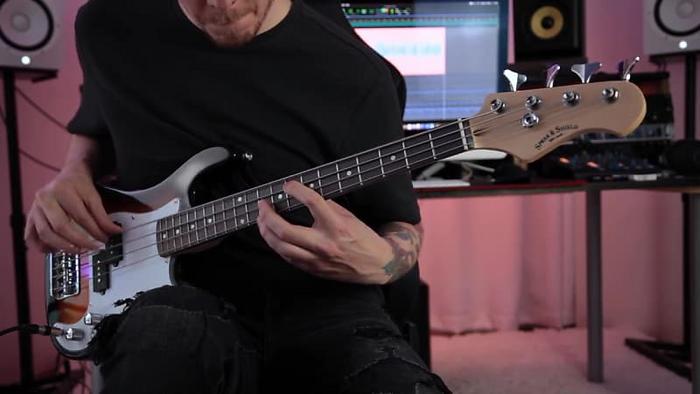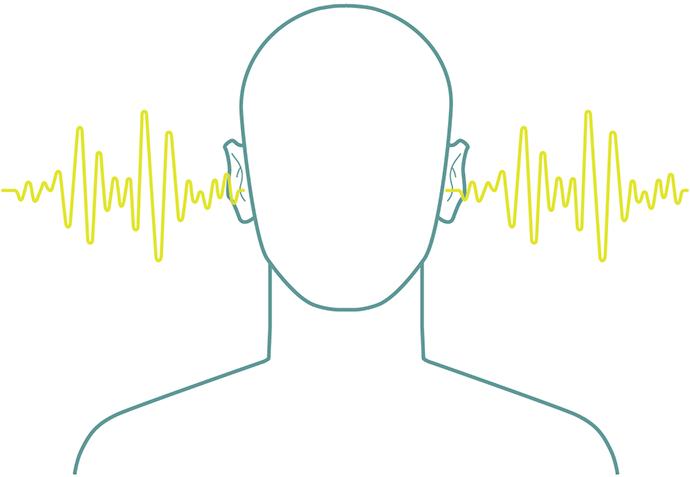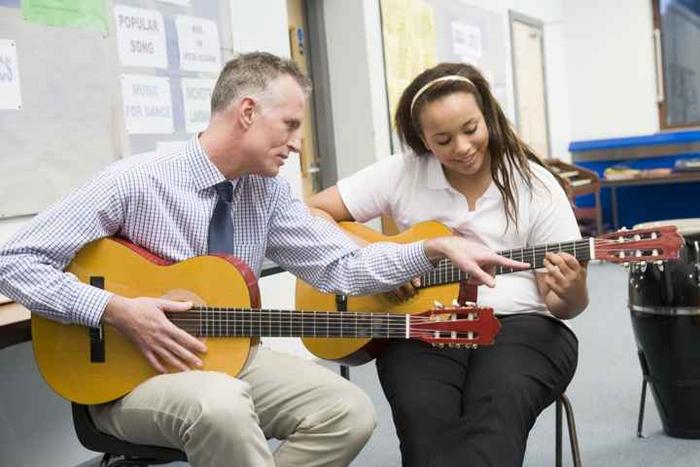Introduction to Children’s Bass Guitars
“The moment my five-year-old niece gingerly plucked her first note on a bass guitar, I witnessed a spark — one that hinted at a journey just beginning. Watching that unrestrained joy flood her face made me realize something profound: the right instrument can be a gateway to a world where creativity and learning blend seamlessly. But which bass guitar should parents choose to ignite that spark in their own children?”
Understanding the nuances of selecting the best bass guitar for kids is crucial. It involves more than just size or sound; it’s about finding the tool that aligns with a young learner’s unique potential. In this guide, I aim to unravel the complexities and highlight key aspects like size, playability, and sound quality to help you make an informed choice. As Troy Nelson insightfully notes, starting young can lay the groundwork for a lifetime of music appreciation. So, let’s explore the factors that can shape your child’s musical journey.
Who Should Consider a Children’s Bass Guitar?
Young Learners: The Ideal Age Group

At what age can a child truly start learning the bass guitar effectively? This question often comes up as parents consider introducing their young ones to music. From my extensive experience in music education, I’ve found that children as young as 6 or 7 can successfully begin learning the bass guitar, provided it’s tailored to their size. This young age group is ideal because they’re in a key stage of development where learning new skills is both stimulating and impactful. Bass guitar sizes for kids are manufactured to cater specifically to these small hands and burgeoning talents, ensuring they’re not overwhelmed by the instrument.
The electric bass for children not only aligns with their physical capabilities but also with their growing interests, which can often lean towards dynamic and engaging sounds. By starting young, children can harness their enthusiasm and channel it into a lifelong appreciation of music. Within the broader context, this exploration of young learners feeds into the foundational question of who should consider a children’s bass guitar. Parents eager to nurture their child’s potential in music might indeed find that even very young children are ready for this exciting journey. By understanding the nuances of appropriate age and size considerations, parents and teachers can make informed choices that set children up for success in their musical pursuits.
Parents and Teachers’ Influence

Can the right guidance from parents and teachers make all the difference in a child’s musical journey? As someone who has delved deeply into children’s music instruments, I can affirm that it certainly does. From my editorial experience, I’ve seen firsthand how the careful involvement of adults can not only boost a child’s enthusiasm but also lay a strong foundation for their musical growth. When considering a children’s bass guitar, this influential duo holds immense power.
Parents serve as the primary facilitators, providing the necessary environment and resources for their children. They play a pivotal role in following a comprehensive bass guitar buying guide to ensure their child’s first instrument matches the child’s aspirations and physical needs. On the other hand, teachers bring a wealth of knowledge and structured support. Their expertise in imparting the essentials is invaluable, making the learning curve smoother and more engaging for young learners.
Such a collaborative approach significantly enhances a child’s motivation and success, making the journey with a bass guitar enriching and worthwhile. Understanding this aspect will not only assist in the decision-making process but also guide you towards a rewarding musical adventure for your child.
What to Look for in a Kid-Friendly Bass Guitar?
Size and Weight Considerations

In my extensive teaching career, I’ve witnessed the transformative impact a properly sized bass guitar can have on a budding musician’s journey. So, why does size and weight matter when selecting a bass guitar for children? The answer lies in both comfort and playability, two critical elements for encouraging young learners to engage with their instrument.
A bass that’s too large or too heavy can quickly lead to frustration and discomfort, potentially deterring a child from pursuing music. Understanding bass guitar sizes for kids is essential to ensuring that the instrument fits comfortably in a child’s hands and can be played without strain. Equally important is the guitar’s weight; a lighter bass allows for easier handling and longer practice sessions, reducing fatigue and increasing enjoyment.
Finding kid-friendly bass guitars often means selecting models designed specifically for smaller hands and frames. Thoughtfully considering these factors enhances a child’s learning experience, fostering a positive and sustained interest in playing. As parents and educators navigate the world of children’s bass guitars, tailoring choices to the child’s physical capabilities is an indispensable part of nurturing their musical journey.
Playability and Sound Quality

Is it possible for a bass guitar to be both fun to play and produce quality sound? Absolutely. In the quest for the perfect children’s bass guitar, these two elements form the cornerstone of an engaging and enriching musical experience. When considering what to look for in a kid-friendly bass guitar, the intersection of playability and sound quality becomes essential.
From my extensive experience as both a musician and an educator, I can affirm that playability is crucial for young learners. An instrument that feels comfortable and is easy to maneuver keeps children engaged and excited about practice. Leading options like the Ibanez Mikro are designed with smaller hands in mind, featuring a lightweight body and shorter scale that make it easier for kids to handle.
Equally important is the guitar’s sound quality. Young learners deserve an instrument that produces clear and resonant tones, which encourages further practice and enhances their enjoyment. Detailed bass guitar reviews for children consistently show that quality sound boosts a child’s ability to discern notes and develop a musical ear, ultimately contributing to their long-term growth.
This integration of playability and sound quality doesn’t just make for a superior learning experience; it cultivates a genuine love for music. As we continue our guide, let’s explore where to purchase these beginner-friendly instruments, ensuring your child’s musical journey starts on the right note.
Where to Buy Children’s Bass Guitars?
Local Music Stores vs. Online Retailers

Should you trust your local music store or venture online for your purchase? This question is crucial when deciding where to buy children’s bass guitars. My experience suggests that *both* options have their distinct advantages. Local music stores often provide a personal touch that is hard to replicate online. The opportunity to physically see and test-play a Fender kids bass, guided by knowledgeable staff, can significantly aid in choosing the right instrument for your child.
Additionally, these stores can offer valuable insights and advice tailored to young learners, helping to demystify aspects of a bass guitar buying guide. On the other hand, online retailers present an expansive selection, often with competitive pricing, making it easier for families to explore various models and brands from the comfort of their home. The breadth of choice available online, combined with detailed reviews and community feedback, can be particularly beneficial for those still weighing their options.
Ultimately, the choice between local stores and online platforms should reflect your priorities and resources. Balancing the *personal interaction* offered by local stores with the *convenience and variety* of online shopping can position you to make an informed purchase, setting the stage for a seamless journey into the world of bass guitars for your young musician. By weighing these options thoughtfully, you can confidently choose the ideal *buying avenue* that best aligns with your family’s needs.
Best Websites for Purchase

Which online platforms offer the best deals and customer experiences for children’s bass guitars? After delving into numerous bass guitar reviews for children and considering factors such as pricing and reliability, I’ve identified several trusted websites that consistently deliver excellent value. Top contenders include Sweetwater, Guitar Center, and Thomann. These platforms provide an **affordable bass guitar for kids** without compromising on quality, making them ideal for budget-conscious parents. What sets these retailers apart is their extensive customer support, fast shipping, and robust return policies, which are crucial when purchasing instruments online.
However, it’s essential to approach online shopping with caution. Based on research and feedback, I’ve highlighted trusted retailers while cautioning against common pitfalls, such as misleading product descriptions and high shipping costs. By choosing reliable sites, you can confidently make informed decisions, ensuring your child receives a bass guitar that aligns with their growth and musical journey. Transitioning from the broader consideration of buying sources, we delve next into when to start learning the bass guitar, guiding you through timing decisions.
When to Start Learning the Bass Guitar?
Signs Your Child Is Ready

How can you tell if your child has a genuine interest in learning the bass guitar? This question is pivotal as you contemplate the right moment to introduce them to this versatile instrument. Through my experience with young learners, I’ve observed that signs of readiness often emerge unexpectedly. For example, if your child enthusiastically taps rhythms or shows a fascination with different music styles, these are key indicators. Furthermore, their readiness shines through intrinsic motivation, usually sparked by early exposure to music, including fun practice routines. When a child starts requesting more practice time or shows pride in their progress on a beginner bass guitar, it’s a good sign they’re ready to embrace the journey.
Investing in a youth bass guitar when interest is genuine ensures a smoother learning curve and fosters long-term dedication. As you evaluate this readiness, remember the significance of intrinsic motivation. It not only drives improvement but also enhances the joy of mastering this deceptively intricate instrument.
Finding the Right Music Teacher

With his experience in music education, Troy believes a supportive and engaging teacher can inspire a child’s musical journey. When considering music lessons for kids, the teacher’s role is pivotal. What should you look for in a music teacher when your child is ready to learn the bass guitar? A great music teacher does more than just impart skills—they ignite passion and foster a lifelong love for music.
To align with the insights from our bass guitar buying guide, ensure the teacher is not only skilled with the bass guitar but also understands the unique needs of young learners. Look for someone patient and adaptable, who can tailor lessons to suit your child’s pace and learning style. A teacher who encourages creativity and challenges students appropriately will likely keep young musicians motivated.
Choosing the right teacher complements the earlier decision of when to start learning. It ensures that your investment in a children’s bass guitar pays off in enthusiasm and growth, readying them for a successful musical adventure.
FAQs
What should I consider when buying a children’s bass guitar?
What size bass guitar is suitable for children?
Are there any recommended brands for children’s bass guitars?
How much should I expect to spend on a children’s bass guitar?
Do children need any additional accessories with their bass guitar?
Conclusion
Is investing in a bass guitar for your child one of the best decisions you can make for their future? From my experience, the answer is a resounding yes. Delving into the world of children’s music instruments enriches a child’s developmental journey, nurturing both creativity and discipline—two life skills that harmonize beautifully. As we’ve explored who should consider a bass guitar and the right age to start, it’s clear that early exposure can set the stage for a lifetime of musical enjoyment and learning.
Selecting kid-friendly bass guitars means focusing on the fundamentals: size, weight, playability, and sound quality. Choosing the right instrument doesn’t just facilitate a comfortable playing experience but also enhances musical growth. Equally important is purchasing from reliable sources, whether it’s a trusted local music store or a reputable online retailer, ensuring you get the best value and quality.
In conclusion, the joy and skills gained from playing an instrument—especially as versatile as the bass guitar—are truly invaluable. This investment in your child’s future is about more than just music; it’s about fostering their creativity and discipline, unlocking potential, and paving the way for a rewarding lifelong hobby or even a career. As a parent or teacher, your influence is crucial in supporting this exciting musical journey.

Troy Nelson, a celebrated guitar educator from Viroqua, Wisconsin, has significantly impacted guitar learning with acclaimed books like ‘Guitar Aerobics’ and ‘Fretboard Freedom’. His unique journey from Sports Management to leading roles at Hal Leonard Corporation and Guitar One magazine has shaped his approach to guitar education. Now based in Nashville, Nelson specializes in crafting effective guitar practice routines, enhancing players’ skills and technical mastery. His work is a treasure trove for guitar enthusiasts worldwide.
